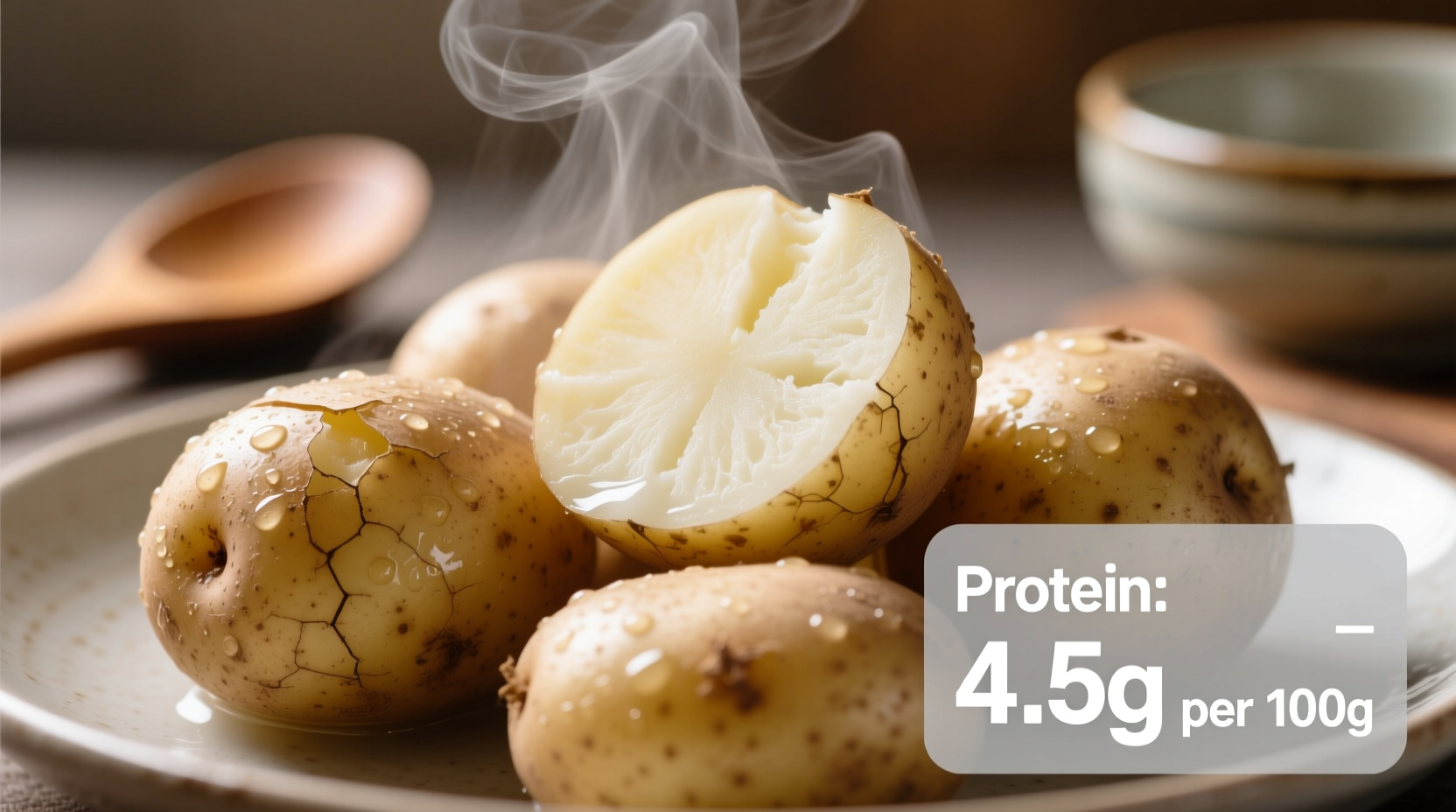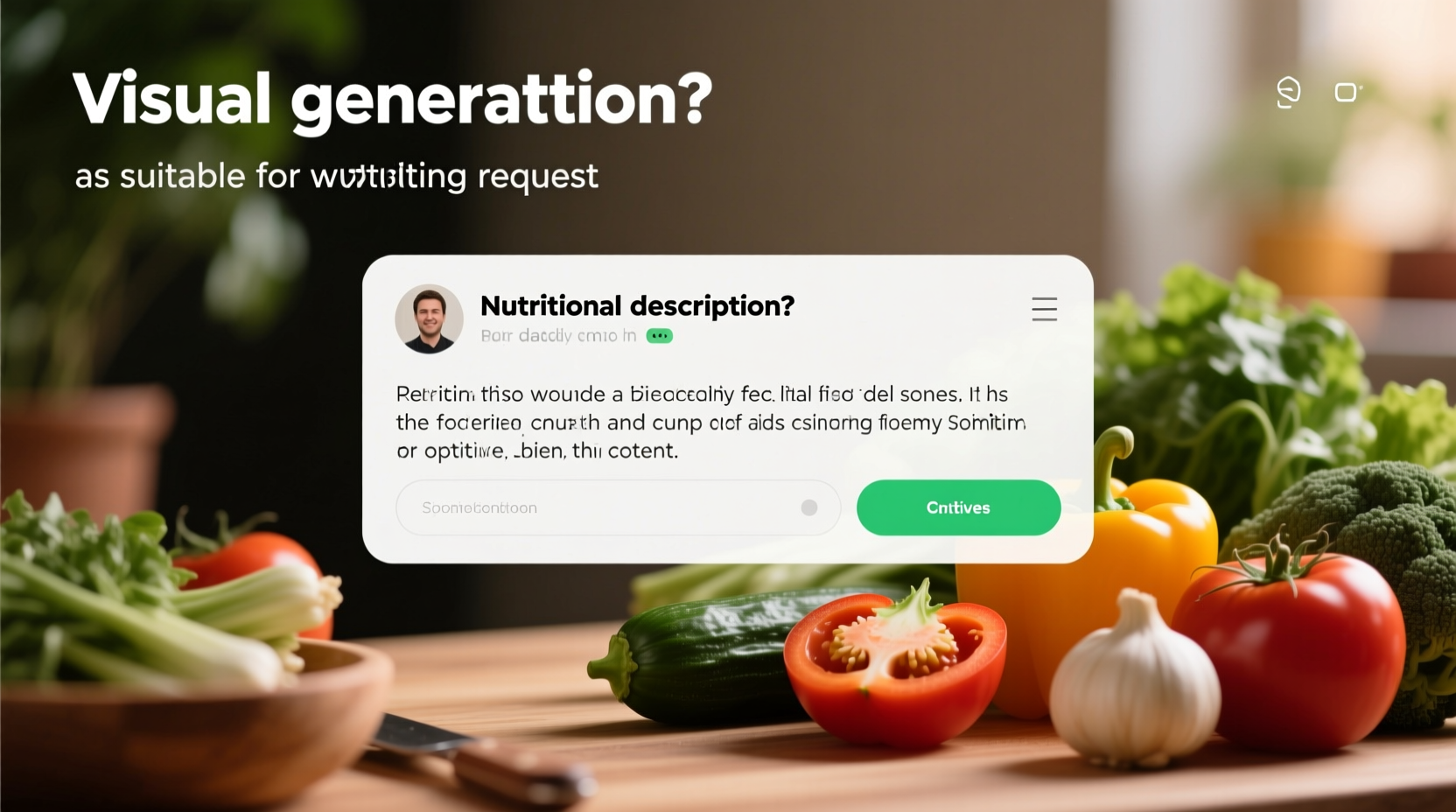When you're planning meals or evaluating your protein intake, understanding exactly what—and how much—protein exists in common foods like potatoes matters. This comprehensive guide delivers precise nutritional data, practical usage tips, and science-backed insights to help you make informed dietary decisions.
How Much Protein Is Actually in Potatoes?
A medium russet potato (about 150g) contains approximately 2.5-3 grams of protein. This represents roughly 4-5% of the recommended daily protein intake for adults. While this might seem modest compared to animal proteins, potatoes deliver this protein alongside essential vitamins, minerals, and fiber—a nutritional package many protein sources lack.
The protein content varies slightly by potato variety. Here's a comparison of common types:
| Potato Variety | Protein per 100g | Protein per Medium Potato | Key Nutritional Benefits |
|---|---|---|---|
| Russet | 2.0g | 2.9g | High in potassium and vitamin C |
| Red | 2.1g | 2.6g | Rich in antioxidants and vitamin B6 |
| Sweet Potato | 1.6g | 2.0g | Exceptional vitamin A content |
| Yukon Gold | 2.2g | 2.8g | Balanced nutrient profile |
Understanding Potato Protein Quality
Unlike many plant proteins, potatoes contain all nine essential amino acids, making them a complete protein source. The amino acid profile includes notable amounts of lysine and tryptophan—two amino acids often limited in other plant foods. According to USDA FoodData Central, potatoes provide approximately 180mg of lysine per 100g, contributing to their protein quality.
While potatoes alone shouldn't be your primary protein source, they complement other plant proteins effectively. When combined with legumes (like beans or lentils), potatoes create a complete amino acid profile that rivals animal proteins in nutritional value—a crucial consideration for vegetarians and vegans.

Practical Protein Boosting Strategies
Maximize the protein value of potatoes with these evidence-based approaches:
- Pair with complementary proteins: Combine potatoes with legumes to create complete protein profiles. A classic example: potato and lentil soup provides 15+ grams of complete protein per serving.
- Keep the skin on: Potato skins contain about 50% more protein than the flesh alone. Baking potatoes with skin intact preserves this valuable protein source.
- Choose appropriate cooking methods: Boiling causes minimal protein loss compared to frying. A study published in the Journal of Food Composition and Analysis found boiling preserves 95% of potato protein versus 85% with frying.
- Time your consumption: Pairing potatoes with protein-rich foods at the same meal enhances overall protein utilization. Try adding Greek yogurt to baked potatoes for an additional 10g of protein.
Addressing Common Misconceptions
Several myths persist about potatoes and protein. Let's clarify with science:
Myth: "Potatoes are just empty carbohydrates with no protein value."
Fact: While carbohydrates dominate potato composition (about 20g per medium potato), the protein content is nutritionally significant and complete. The Academy of Nutrition and Dietetics recognizes potatoes as valuable contributors to plant-based protein intake.
Myth: "The protein in potatoes gets destroyed during cooking."
Fact: Research from the USDA Agricultural Research Service shows minimal protein degradation during standard cooking methods. Most preparation techniques preserve over 85% of potato protein content.
Myth: "You'd need to eat enormous quantities of potatoes to get meaningful protein."
Fact: While potatoes aren't protein-dense like meat, they contribute meaningfully to daily intake. Three medium potatoes provide approximately 8g of protein—comparable to one egg—plus valuable fiber and micronutrients absent in that egg.
How Potatoes Fit Into Different Dietary Patterns
Understanding where potatoes fit in various eating approaches helps optimize your nutrition:
- Vegetarian/Vegan Diets: Potatoes serve as excellent protein complements when paired with legumes. A traditional Indian dish like Aloo Chana (potato and chickpea curry) delivers 12g of complete protein per serving.
- Active Lifestyles: The protein-carbohydrate combination in potatoes supports muscle recovery. Research in the International Journal of Sport Nutrition shows potato-based meals post-exercise effectively replenish glycogen stores while providing muscle-repairing protein.
- Weight Management: Potatoes' protein content contributes to satiety. A study in the journal Appetite found boiled potatoes ranked highest for satiety among 38 common foods, partly due to their protein-fiber-carbohydrate balance.
For those monitoring protein intake, remember that while potatoes contribute meaningfully, they work best as part of a varied diet. The Dietary Guidelines for Americans recommends 46-56g of protein daily for adults, with potatoes providing a modest but valuable portion of this requirement.











 浙公网安备
33010002000092号
浙公网安备
33010002000092号 浙B2-20120091-4
浙B2-20120091-4